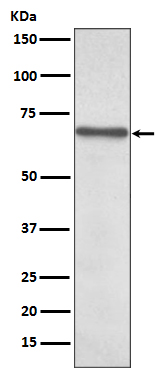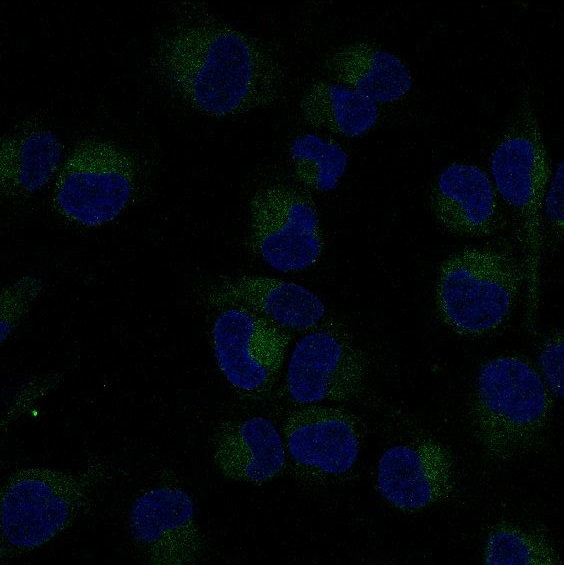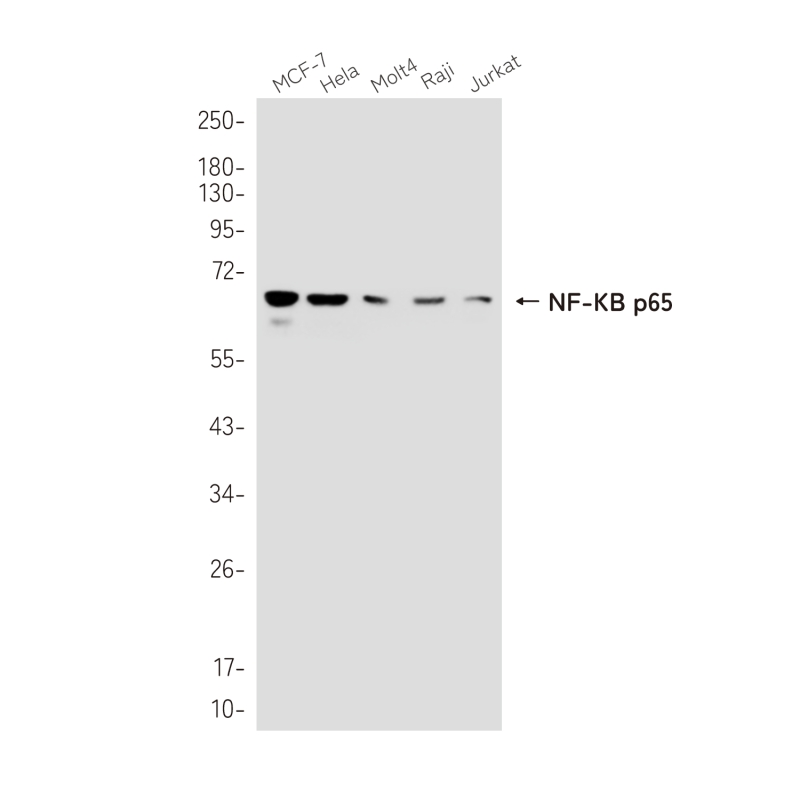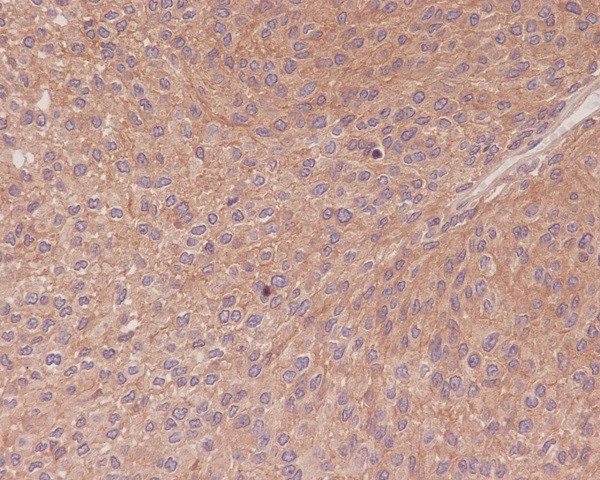



| WB | 咨询技术 | Human,Mouse,Rat |
| IF | 1/20 | Human,Mouse,Rat |
| IHC | 1/50-1/100 | Human,Mouse,Rat |
| ICC | 1/50-1/200 | Human,Mouse,Rat |
| FCM | 1/50-1/100 | Human,Mouse,Rat |
| Elisa | 咨询技术 | Human,Mouse,Rat |
| Aliases | NFKB3; RELA; TF65; Transcription factor p65; p65; NFkB |
| Entrez GeneID | 5970 |
| WB Predicted band size | Calculated MW: 60 kDa; Observed MW: 65 kDa |
| Host/Isotype | Rabbit IgG |
| Antibody Type | Primary antibody |
| Storage | Store at 4°C short term. Aliquot and store at -20°C long term. Avoid freeze/thaw cycles. |
| Species Reactivity | Human,Mouse |
| Immunogen | A synthesized peptide derived from human NF-κB p65 |
| Formulation | Purified antibody in PBS with 0.05% sodium azide. |
+ +
以下是为您整理的3篇关于NF-KB p65抗体的参考文献示例(内容为虚构演示,仅供参考格式):
---
1. **文献名称**:*NF-κB p65 phosphorylation regulates cisplatin-induced apoptosis in lung cancer cells*
**作者**:Li, X., et al.
**摘要**:该研究通过Western blot和免疫荧光技术,利用NF-KB p65抗体探讨了顺铂化疗药物诱导肺癌细胞凋亡的机制,发现p65的Ser536磷酸化水平变化影响其核转位及促凋亡基因表达。
2. **文献名称**:*Inflammatory cytokine TNF-α activates NF-κB signaling via p65 nuclear translocation in macrophages*
**作者**:Smith, J., & Chen, Y.
**摘要**:作者通过ChIP-qPCR和免疫共沉淀实验,结合p65特异性抗体,揭示了TNF-α刺激下巨噬细胞中NF-κB p65的核转位动态及其靶基因结合模式,为炎症反应调控提供新见解。
3. **文献名称**:*Role of NF-κB p65 in viral infection-induced immune evasion*
**作者**:Wang, H., et al.
**摘要**:研究利用siRNA敲低和p65抗体进行免疫组化分析,证明病毒蛋白通过抑制p65降解逃逸宿主免疫监视,为抗病毒治疗策略提供了实验依据。
---
**提示**:实际引用时请通过PubMed或Google Scholar搜索关键词(如“NF-κB p65 antibody application”),并筛选涉及该抗体具体实验方法(如Western blot、IHC、ChIP等)的文献。
The NF-κB p65 antibody is a crucial tool for studying the NF-κB signaling pathway, which regulates genes involved in inflammation, immunity, cell survival, and proliferation. NF-κB (Nuclear Factor Kappa B) comprises a family of transcription factors, with p65 (RelA) being a key subunit. Structurally, p65 contains a Rel homology domain for DNA binding and dimerization and a transactivation domain that activates target gene transcription. It typically forms heterodimers with p50. another NF-κB subunit, to regulate gene expression. In resting cells, NF-κB complexes are sequestered in the cytoplasm by inhibitory proteins like IκB. Upon activation by stimuli (e.g., cytokines, pathogens, stress), IκB is degraded, allowing p65/p50 dimers to translocate into the nucleus and initiate transcription of pro-inflammatory cytokines, chemokines, and anti-apoptotic proteins.
The p65 antibody specifically detects endogenous p65 protein, enabling researchers to analyze its expression, phosphorylation status, and subcellular localization via techniques like Western blotting, immunofluorescence, and immunohistochemistry. It is widely used in studying diseases linked to NF-κB dysregulation, such as cancer, autoimmune disorders, and chronic inflammation. Additionally, it aids in evaluating pharmacological inhibitors targeting NF-κB pathways. Its specificity and reliability make it indispensable for elucidating mechanisms of NF-κB activation and validating therapeutic strategies in preclinical models.
×